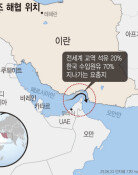Active Deterrence vs. N. Korea
North Koreas Foreign Ministry has threatened a physical response to new U.S. financial sanctions on Pyongyang. The Norths powerful National Defense Commission has announced retaliation based on its nuclear deterrence against joint naval drills between South Korea and the U.S. in the East Sea. Given that the North has made good on its threats in the past, its threats are not to be taken lightly. James Clapper, the nominee for U.S. national intelligence director, also warned of a dangerous era in which the North could directly attack the South to fulfill its objectives.
On sanctions on Pyongyang by Seoul and Washington over the sinking of the South Korean naval warship Cheonan, the North issued an emergency preparedness alert for its military and people. Pyongyang is also likely to conduct a third nuclear test or launch another armed provocation. The North has used the conventional response of threatening retaliation when facing sanctions for its misbehavior. Against this backdrop, it seems meaningless to discuss peace on the Korean Peninsula with Pyongyang. A high-ranking government official in Seoul said something meaningful: joint sanctions by South Korea and the U.S. on the North are partly aimed at changing the Stalinist countrys regime.
On May 24, South Korean President Lee Myung-bak told his people that the North will pay the price for what it did, referring to the Cheonan sinking, adding, We will stick to the principle of active deterrence. A psychological war against the North, which would be most effective in attacking the North, was delayed in the wake of Pyongyangs threat to turn Seoul into a sea of fire. Interest is growing in how the South Korean government will react to the Norths latest threats in such a situation. Many question if Seoul has strategies to implement its principle of active deterrence.
Seoul should not let its comments end up as empty words. Its repeated failure to talk the talk and walk the walk will lead to the Norths misjudgment and South Koreans mistrust in their government. As a result, conflict among South Koreans could rise and the North could take misguided action. The South Korean officials comment on a change in the North Korean regime could unnecessarily ruffle the Norths feathers with no practical benefits.
Recognizing that national defense should be based on action, not rhetoric, Seoul needs to increase pressure on Pyongyang while closely watching movements in the communist country. With uncertainty in the North growing, the South must seek a delicate strategy of active deterrence.



![아침 공복 따뜻한 물 한 잔, 정말 살 빠지고 해독될까?[건강팩트체크]](https://dimg.donga.com/c/138/175/90/1/wps/NEWS/IMAGE/2026/03/05/133467930.3.jpg)



